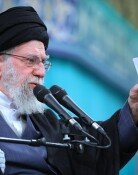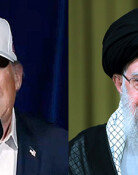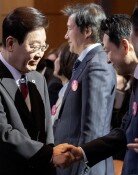ROK-US military drills cannot be exchanged for Norths nuclear test suspension
ROK-US military drills cannot be exchanged for Norths nuclear test suspension
Posted January. 12, 2015 07:19,
The U.S. has rejected the overture from North Korea that the North will temporarily suspend its nuclear test if the U.S. halts its joint military exercises with South Korea. Regarding the offer delivered to the U.S. on Friday, the communist regime said, "We are ready to sit with the U.S. anytime." However, U.S. State Department spokeswoman Jen Psaki responded, The DPRK statement that inappropriately links routine US-ROK exercises to the possibility of a nuclear test by North Korea is an implicit threat.
The U.N. Security Council has been imposing sanctions the bellicose nation that has carried out nuclear tests three times so far. The Security Council resolution 2094, which the council adopted against Pyongyang in March 2013, contains a trigger clause to take further significant measures in the event of a further DPRK launch or nuclear test. North Koreas further nuclear test is an object to sanctions by the council, not a medium for negotiations to cancel the South Korea-U.S. joint military exercise. The Norths attempt to link the joint defense military drills to its nuclear tests banned by the U.N is seen as a trick on a par with a propaganda attack.
Last week, the North called on the South Korean government to state its position on anti-Pyongyang flyers, the Korea-U.S. joint military drills and reunification through absorption, making it as prerequisite for the resumption of the inter-Korean dialogues. It is hard to find sincerity in the Norths attitude. Claiming prerequisites for the resumption of nuclear talks with the U.S. is contrary to the existing stance the isolated country takes. Choe Ryong Hae, who visited Russia in November last year as a special envoy designated by North Korean leader Kim Jong Un, received support from Russia by arguing "unconditional resumption of the six-party talks." Even in the year of 2005, when the North promised to abandon its nuclear program under the September 18 Joint Statement, joint military exercises with the U.S. were conducted. If Pyongyang carries out further nuclear tests, China and Russia have to join strict sanctions in accordance with the resolution already adopted by the Security Council.
If Pyongyang is willing to resume inter-Korean dialogues or talks with the U.S., there is no reason to drag its feet. The Track 1.5 to be held in Singapore in middle of January, where Stephen Bosworth, the former United States Special Representative for North Korea Policy, and Ri Yong Ho, North Koreas senior representative to the six-party talks, are supposed to attend, will serve as a good opportunity for the North. If Pyongyang responds to the inter-Korean talks, the possibility to restart talks between the North and the U.S. will grow further.







